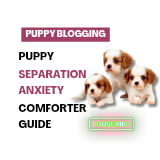Puppy Parenthood: Navigating Common Challenges
- Apr 1, 2022
- 3 min read
Updated: Feb 20, 2025
Raising a puppy is undeniably a delightful experience filled with the expected joys of nurturing a baby designed to be inquisitive, playful, and social. However, seasoned puppy parents will readily acknowledge that amid the fun, there are moments of genuine frustration, often accompanied by sleepless nights. The level of frustration varies among individuals, influenced by the pup's distinct personality, shaped by genetics and nature, and the family's commitment to training and socialisation, influenced by their environment and nurturing.

While the allure of a cute, loving puppy is often the focal point when contemplating pet ownership, it's essential to recognise that the journey can be challenging. Like any relationship, there are highs and lows, and experiencing frustration as a puppy parent is a universal reality.
Witnessing the enthusiasm of individuals during the initial stages of teaching them to train their dogs is one of the many rewarding aspects for dog trainers. Initially, a puppy can easily capture the hearts of their family with simple acts, like sitting on command. However, the true weight of the responsibility sets in as the challenges of raising a pup become apparent. The journey of puppy parenting is marked by frustration as predictable hiccups, such as house training mistakes, inappropriate chewing, excessive barking, and nipping, arise.
A poignant example is a client in Bradford who reached out to us about two weeks after adopting a 10-week-old puppy. Candidly, he confessed contemplating returning the puppy to the breeder. Sleep deprivation, constant clean-ups after house training missteps, concerns about separation anxiety evidenced by intense barking, and the unpleasant experience of constant nipping and mouthing had left him exhausted and disheartened.
Navigating the complexities of puppy parenthood is a shared experience that unites all dog owners. The key lies in acknowledging the challenges, seeking support when needed, and embracing the journey with patience and perseverance. As with any worthwhile endeavour, the rewards of a well-trained, well-adjusted canine companion far outweigh the transient frustrations of puppyhood. In this post, we'll explore some common issues that you may encounter when having a puppy, along with practical tips on how to overcome them and celebrate the joyful moments of puppyhood.
Housebreaking Woes: One of the initial challenges with a new puppy is housebreaking. Accidents are inevitable as your puppy learns the ropes. Be patient, establish a consistent routine for bathroom breaks, and use positive reinforcement when they eliminate in the designated area.
Chewing and Teething: Puppies explore the world with their mouths, and teething is a natural part of their development. Provide appropriate chew toys to soothe their gums and discourage destructive chewing. Puppy-proof your home by removing items that may be tempting targets.
Sleepless Nights: Puppies may initially struggle with sleeping through the night. Crate training can help create a secure sleeping environment. Keep a consistent bedtime routine, and avoid engaging in stimulating activities close to bedtime.
Socialisation Challenges: Socialisation is crucial for a well-adjusted adult dog, but it can be challenging for puppies. Gradually expose your puppy to various people, places, and experiences. Use positive reinforcement to create positive associations and build their confidence.
Training Frustrations: Training a puppy requires time, consistency, and patience. You may face challenges such as stubbornness or distraction. Break training sessions into short, engaging segments, use high-value treats, and celebrate small victories to keep both you and your puppy motivated.
Excessive Energy: Puppies are bundles of energy, and they may become hyperactive, especially in the evening. Provide regular exercise, interactive play, and mental stimulation to tire them out. A tired puppy is more likely to be well-behaved.
Health Concerns: Puppies are susceptible to various health issues, including parasites, vaccinations, and common illnesses. Schedule regular veterinary check-ups, follow the recommended vaccination schedule, and monitor your puppy's behaviour for any signs of illness.
Establishing Boundaries: Setting boundaries is crucial for a well-behaved dog. Consistently enforce rules about furniture, access to certain rooms, and acceptable behaviours. Use positive reinforcement to reward good behaviour and redirect undesirable actions.
Separation Anxiety: Puppies may experience separation anxiety when left alone. Gradually acclimate your puppy to being alone, starting with short durations and gradually increasing. Provide engaging toys or puzzle feeders to keep them occupied.
Maintaining a Healthy Diet: Choosing the right food for your puppy is essential for their growth and well-being. Consult with your veterinarian to determine the appropriate diet based on your puppy's breed, size, and specific nutritional needs.
While puppyhood brings its share of challenges, the journey is also filled with heartwarming moments, laughter, and the joy of forming a deep bond with your furry companion. Embrace the learning curve, be patient, and celebrate the small victories along the way. With consistent care, positive reinforcement, and a lot of love, you'll navigate the challenges of puppyhood and witness your furry friend grow into a well-adjusted and cherished member of your family.











Comments